
Richard Drury/DigitalVision via Getty Images
Foreign stocks continue to suffer versus the U.S. equity market. Just today, the developed ex-U.S. index notched fresh relative lows vs the Vanguard Total U.S. Stock Market ETF (VTI). For a time late last year through the first half of 2022, U.S. markets, dominated by tech and growth shares, faltered relative to value sectors. Alas, the monster 18% rally off the June 16 low has been led, once again, by those same mega-cap tech stocks. That trend has led to severe negative relative returns among foreign stocks.
EFA Prints New Lows Versus U.S. Stocks
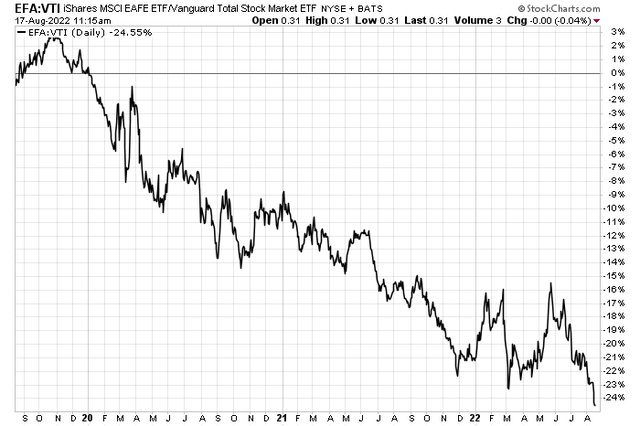
Stockcharts.com
The iShares MSCI EAFE ETF (NYSEARCA:EFA) is a popular fund tracking foreign developed markets. According to iShares, EFA seeks to track the investment results of an index composed of large- and mid-cap developed market equities, excluding the U.S. and Canada.
EFA’s portfolio is more diverse than the S&P 500’s considering that Apple (AAPL) now has a record position in the domestic U.S. large-cap index at more than 7%. In contrast, EFA’s single biggest stock makes up just 2.35% of the portfolio. Moreover, EFA’s sector breakout is more spread out versus the S&P 500’s monster weight in tech and tech-related companies. Financials represent the biggest sector weight at 17% followed by another value area – Industrials at 15%. Health Care and Consumer Discretionary are each about 12% of EFA. Information Technology is just 8.3% of the fund.
EFA’s Diverse Portfolio
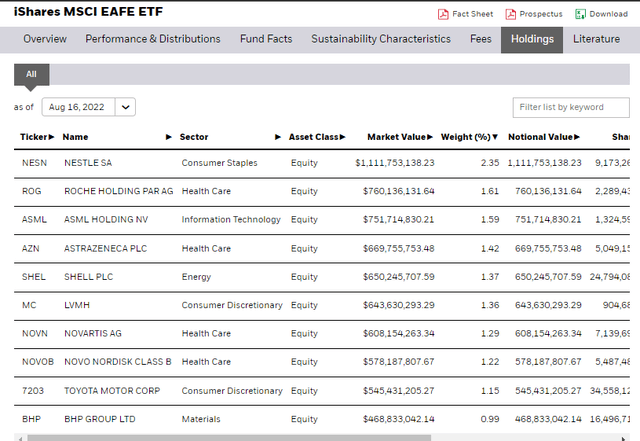
iShares
An important point about EFA – investors are better served owning a very comparable ETF. The iShares Core MSCI EAFE ETF (IEFA) is effectively the same thing as EFA if you look at the performance history of both the ex-US developed market funds, but it is 0.25 percentage points cheaper on its expense ratio, according to ETF.com’s comparison page.
Another option is the very cheap Vanguard FTSE Developed Markets ETF (VEA), with an expense ratio of 0.05% per year, or even the Schwab International Equity ETF (SCHF) at a 0.06% expense ratio. Regardless of your preferred alternative, EFA is too expensive to own for long-term investors considering other lower-cost options.
Avoid EFA: Go For A Cheaper Choice
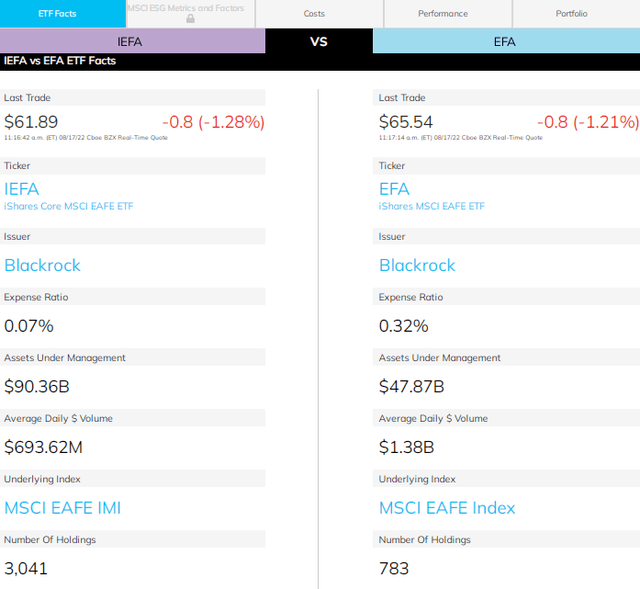
ETF.com
Another analysis technique I use is comparing foreign developed market stocks to emerging market equities. The relative performance chart of EFA to EEM shows a slight momentum edge to the former, but it’s been choppy relative price action for this year. There have been fits and starts of decent EM returns, but setbacks from China have hampered EM’s returns while EFA has dealt with its own issues stemming from the ongoing energy crisis in Europe.
Foreign Developed Versus Emerging Markets
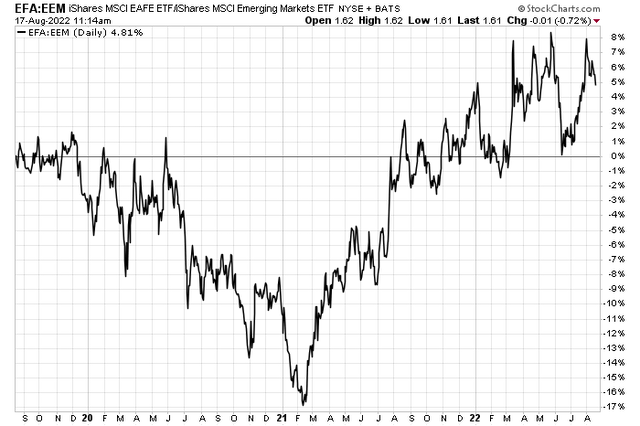
Stockcharts.com
Let’s dive deeper into EFA. The fund trades at a 13.57 price-to-earnings ratio, per iShares. That’s a cheap valuation on its own and compared to that of the U.S. stock market.
The Technical Take
Technically, I see resistance at the moment, though. Notice in the chart below that EFA has run into a downtrend resistance line off the early 2020 rebound highs. The graph is also bearish in the sense that it formed a rounded top pattern last year, then broke below the key $76 level before bottoming under $60 in July. The current relief rally is innocent until proven guilty, in my technical eyes.
EFA: Running Into Resistance. A Re-test Of The Low In The Offing?
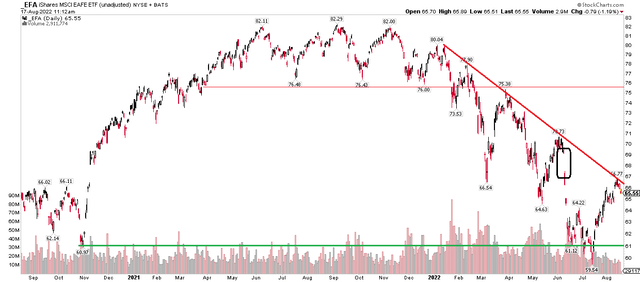
Stockcharts.com
The Bottom Line
Long-term investors should certainly have exposure to foreign developed markets given their depressed valuation. I would not do it in EFA, though. Choose a lower-cost option. Near-term traders should avoid EFA, too, but from a bearish technical perspective. EFA might be poised for a retest of the summer lows.


Be the first to comment